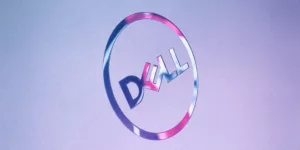Every company I cover has sustainability efforts, but most have little to do with the need to reduce electronic waste. The problem is that to do that would require us to rethink not only how we manufacture equipment but how we sell it. Ironically, back when IBM ruled the tech industry, it was far more sustainable because IBM leased rather than sold equipment and used terminals which had a far longer service life than PCs or smartphones. What is needed to address this aspect of sustainability is a combination of a service-based program and a complete hardware redesign to enable longer service life for the major parts of a device and to place more importance on repair and upgrade rather than replacement. This simple strategy could keep more waste out of landfills and pollution out of our rapidly dwindling water supply.
The first product I’ve seen that comes close to following this strategy is Dell’s Concept Luna. While it’s still in development, it’s certainly worth talking about Concept Luna this week.
Dell’s Concept Luna
Luna is a laptop that has been redesigned to be far more repairable and upgradeable than any current laptop in the market. This is not a redesign for productivity, to highlight a new CPU or GPU, or to display new form factors or materials. Instead, Luna is designed to rethink how we build hardware using a component approach so that damaged laptops can be more easily repaired and upgraded. Conceivably, they would remain in service for longer periods of time with less disruption to the user and less waste going into the environment.
By creating a more circular design concept, Dell estimates that it could reduce the related carbon footprint for the laptop by 50%. The goal is 100% with every subsequent advancement becoming more difficult to accomplish, 50% is a huge first step toward the final goal of preventing the product from damaging the environment at all.
This effort not only introduced innovative technologies like closed-loop aluminum harvested from old hard drives and bioplastics made from tree waste, but it also includes reclaimed carbon fiber which would have otherwise been discarded.
This effort is not just about the product itself, either. It includes major improvements to packaging using sustainable materials and the elimination of all plastics, including plastic tape, that often contaminate paper recycling efforts.
Working with Intel, Dell significantly reduced the size of hard-to-recycle components like the motherboard which has been attributed to reducing the carbon footprint for the device by 20% alone. This redesign also helped cool the motherboard, potentially increasing the performance of the device and reducing heat-related failures.
The chassis is built using hydropower and incorporates stamped aluminum over machining which is more energy-efficient and reduces the amount of scrap. The number of screws holding the system together have been massively reduced, lowering assembly time and potentially lowering the time to repair the device by 1.5 hours.
Dell has also switched to a new battery technology. It’s using an advanced deep-cycle battery that has a far longer life and can be reused in other products rather than discarded when the laptop is taken out of service. Concept Luna even uses a bio-based printed circuit board using a water-soluble polymer for glue. This makes it far easier for recyclers to pull off the components they need to recycle, dramatically improving the profitability of recycling.
Wrapping up:
Concept Luna is a massive rethinking of one product that has implications for all others in terms of materials and how you integrate sustainability into every facet of a product. Designs like this are on the critical path to your more sustainable future. This is not a point offering from Dell, either, as it will undoubtedly be wrapped with a Hardware-as-a-service program that also helps assure Dell’s commercial interests are aligned with this more sustainable path. It will serve as an example for not only all of Dell’s other products but to Dell customers who are also searching for more sustainable ways to build things.
If we are to mitigate the massive amount of damage we are doing to the planet, we need more offerings like Concept Luna, and Dell clearly gets that. We can only hope that other technology companies follow Dell’s lead.








